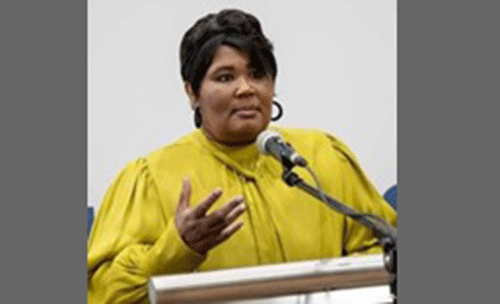At first, glance, relating climate change to police work might seem unrealistic – even far-fetched. Still, as the planet warms, it is becoming increasingly clear that the shifting climate is not only an environmental issue but a driver of conflict, crime and societal disruption, forcing law-enforcement agencies to confront a new and complex set of challenges that threaten global security.
Many police organisations around the world lack measures or comprehensive strategies to address climate change issues and the growing impact of climate change on crime and public security.
Despite the increasing frequency of climate-related disasters, resource conflicts and environmental crimes, law-enforcement agencies often remain unprepared to mitigate the associated risks.
This oversight is particularly problematic, as climate change exacerbates issues like forced migration, illegal resource extraction and organised environmental crime.
These all require coordinated and specialised policing efforts.
As a result, there is a critical need for law-enforcement agencies to adapt to the emerging challenges posed by a rapidly changing climate.
In Namibia and other African countries, for instance, these challenges include illegal logging, wildlife trafficking, resource conflicts and increased incidents of environmental exploitation.
The police, as the frontline actors responsible for maintaining public order and preserving internal security, are at the heart of responding to these evolving threats.
The worrisome trend is that many law- enforcement agencies remain reactive, rather than proactive in addressing such crimes.
To me, this is the plausible gap that needs consented attention.
I now ask these two fundamental questions: what transformative impact could law-enforcement have on community resilience if they actively champion sustainable practices and foster environmental awareness, challenging the notion that policing and climate action are unrelated?
How might the future of public safety evolve if police agencies embraced a proactive role in climate adaptation and resilience, dispelling doubts about their capacity to contribute meaningfully to global efforts against climate change?
With these questions, it might be right now to state that police can reduce their carbon footprints by utilising green technology vehicles and implementing energy-efficient systems within police facilities.
Moreover, police institutions are uniquely positioned to engage with diverse community stakeholders.
Their established relationships within the community can serve as a foundation for educating citizens about climate issues, encouraging grassroots initiatives, and facilitating local discussions on environmental stewardship.
In the imaginary space, can we relate to the police-led workshops on sustainable practices, public forums discussing climate adaptation strategies or community clean-up events that not only address environmental concerns, but also strengthen community ties?
With this in mind, it is clear that the adoption of sustainable practices by law- enforcement agencies to combat climate change is essential.
For instance, transitioning to green initiatives is crucial for fostering environmental stewardship.
This leads me to a critical inquiry again: can law enforcement effectively monitor and implement these green initiatives without robust strategies and policy frameworks?
We may largely agree that this is indeed impossible.
Thus, there is an urgent need for police reforms focused on monitoring compliance with green initiatives, and educating the public throughout the process.
What makes this endeavour particularly vital for law-enforcement is that a proactive approach enables police to advocate for similar measures within their communities.
This not only showcases their commitment to environmental sustainability, but also underscores the idea that climate resilience is a shared responsibility – one that necessitates collective action from all sectors of society.
There is strong evidence to suggest that an increase in the competition over water resources, exacerbated by prolonged droughts in regions like the Sahel, has led to violent clashes among communities.
Moreover, resources scarcity fuels organised crime, such as illegal mining and logging, which are rampant in Africa’s tropical forests.
Without a strategic framework for involvement in climate change initiatives, police institutions remain ill-equipped to counter the complex socio-environmental dynamics of climate-related crimes or continue to be more reactive.
Internationally, various frameworks guide climate change action, such as the Paris Agreement, adopted in 2015, and the United Nations Framework Convention on Climate Change.
At the continental level, the African Union’s Agenda 2063 includes climate change as a significant focus area and the African Climate Change Strategy, which aims to enhance resilience and promote sustainable development across the continent.
In Namibia, the National Climate Change Policy outlines the country’s strategies to address climate change impacts and promote adaptation and mitigation efforts.
Despite the presence of these frameworks, a critical question arises: can police effectively identify when individuals or organisations are not adhering to climate change initiatives?
This challenge is compounded by the need for law-enforcement to maintain public safety and order while simultaneously promoting environmental compliance.
For police to successfully monitor and enforce compliance with climate-related initiatives, a deeper understanding of these policies is essential.
This understanding allows law- enforcement officers to recognise violations, educate the public about sustainable practices, and advocate for compliance with environmental regulations.
In an era where climate change threatens the very fabric of our societies, the question is not whether police should engage in environmental initiatives, but rather how our collective survival hinges on their transformation from enforcers of law to proactive guardians of ecological integrity.
*Anne-Marie Nainda writes in her capacity. Her views do not necessarily reflect those of any police organisation.


